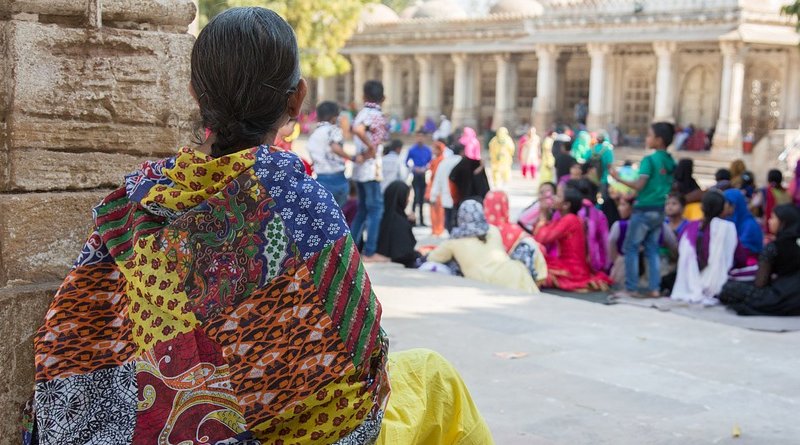Silence Hides Violence – OpEd
While the world might fret over “COVID or Climate Emergency”, most parts of the world are firmly in the grip of a “Rape Emergency.” According to United Nations (UN), one in three women worldwide experience physical or sexual violence which negatively affects their general well-being and prevents them from fully participating in society. Sexual violence or rape is rooted in our society since birth of mankind, however, in some countries its ratio is dangerously high. Recently, Thomas Reuters Foundation in a global survey declared India the most unsafe place for women. However, this trend is not new and has triggered debate not only in India but in West also.
On social media, New Delhi is referred to as Rape Capital of the World. The data compiled by the National Crime Records Bureau (NCRB), India recorded 3,78,236 cases of crimes against women in 2018. It had an average of 87 rape cases daily in 2019 and overall 4,05,861 cases of crime against women during the year, a rise of over 7% from 2018, as per the latest Government data released on September 29, 2020.
The findings come amidst widespread outrage over the gang rape and brutalization of a Dalit woman in Uttar Pradesh’s Hathras. The woman passed away later. the The NCRB data for 2019 also states that majority of these cases under Indian Penal Code were registered under ‘cruelty by husband or his relatives’ (30.9 per cent) followed by ‘Assault on women with intent to outrage her modesty’ (21.8 per cent), ‘kidnapping and abduction of women’ (17.9 per cent). Most rapes also go unreported because the rape victims fear retaliation and humiliation. In 2020, the Association for Democratic Reforms carried out an extensive study which found that India’s parties, at local and national level, had given tickets to 327 candidates with charges of violence against women while 47 MPs had been accused of rape in the survey.
In India, the rape culture has become a menace, where every fifteen minutes a female is raped based on religion, cast or ethnicity. May it be the rape of the girl from lower Hindu cast in Delhi to a foreigner visiting India and/or on the other end heart wrenching campaigns of rape and violence against Muslim women, girls, and children in Indian administered Kashmir by the Indian security forces, the Indian state continues with notorious impunity. Most recently an Afghan teenager living in Kabul fell victim to this mindset.
India also houses world’s largest human trafficking hub where Indian state intelligence agencies are collaborating with the human trafficking cartels to generate economy from $150 Billion worth of industry for the use of subversive policies against other states especially Pakistan and to plague the host countries with their fascist approach.
It is important that the International Community should take notice of the emerging evidence of Indian involvement in exporting rape abroad. Similarly, relevant international agencies should investigate the linkages between international human traffickers and recent rape by an Indian in Afghanistan. However, mere descriptive reports of the crimes will not be enough to bust this unholy alliance between the Indian state agencies and human traffickers. Appropriate action on part of the international community in terms of economic sanctions and political punishment will be required, limiting the extremist mindset against human rights and international law.
Women have been highly vulnerable to individual and collective violence. Violence against women is a human rights violation, and the immediate and long-term physical, sexual, and mental consequences for women and girls can be devastating, including death. It impacts their families, community and the country at large. It has tremendous costs, from greater strains on health care to legal expenses and losses in productivity. Women are already suffering from the mental and physical consequences of violence.
For more than 10 years, UN Women’s global initiative, Safe Cities and Safe Public Spaces, has worked to prevent and respond to sexual harassment against women and girls in public spaces. It is a great model to follow. However, according to World Bank (2020), at least 155 countries have passed laws on domestic violence, and 140 have legislation on sexual harassment in the workplace but challenges remain in enforcing these laws, limiting women’s access to safety and justice. Not enough is done to prevent violence, and when it does occur, it often goes unpunished. Women’s unending sufferings need to be stopped for future of this world. International community must stop the silence and take action to stop this violence.
*Gulshan Rafiq, the writer is an Islamabad based researcher.

